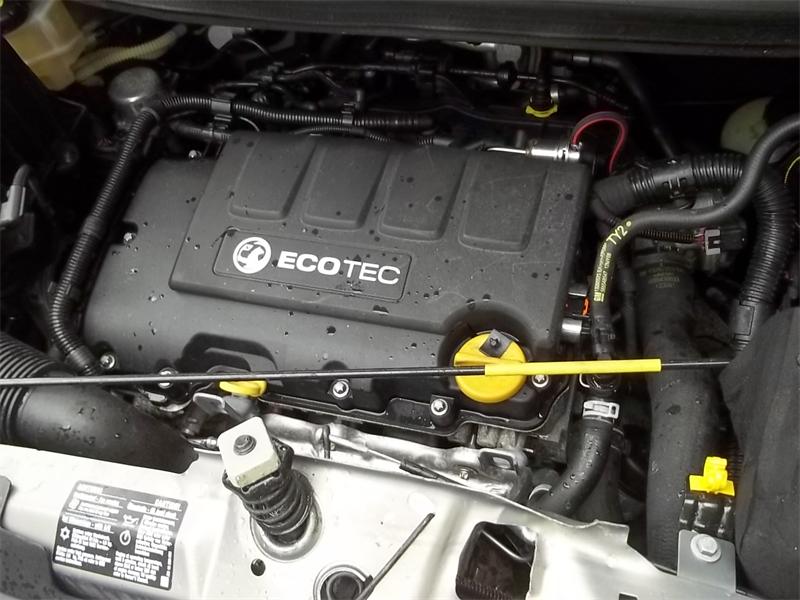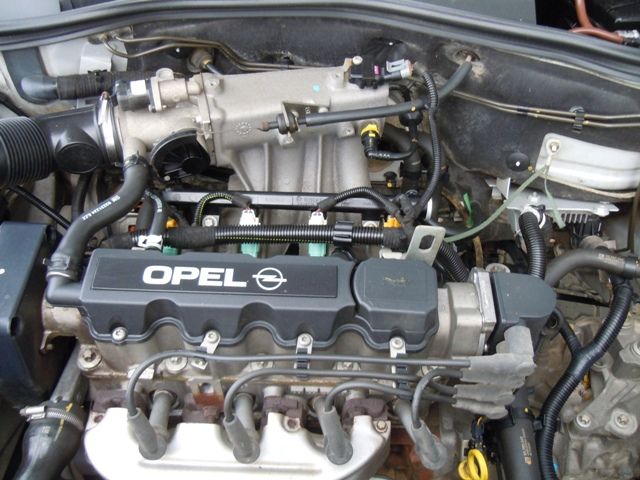Engine Purchasing Specialist Tips on Selecting the Right Engine for Your Particular Requirements
Picking the ideal engine for your particular needs involves an intricate interplay of factors that go past simple horsepower numbers. By delving into the ins and outs of power versus effectiveness, evaluating gas scores, and budgeting for long-term expenses, one can really maximize their engine choice.
Power Vs. Efficiency: Locating the Equilibrium
When selecting an engine, it is crucial to strike an equilibrium between power and efficiency to meet your details requirements efficiently. Power refers to the engine's ability to produce power for propulsion, establishing elements like velocity, hauling ability, and general efficiency - Opel Corsa 1.4 Engine Price. On the other hand, effectiveness connects to exactly how well the engine makes use of fuel to create power, impacting variables such as fuel economy and ecological kindness
Achieving the appropriate balance between power and efficiency is important due to the fact that an engine that is also powerful might consume too much fuel, causing higher operating expense and unneeded pressure on the atmosphere. Conversely, an engine that focuses on efficiency over power might lead to slow-moving efficiency, especially popular scenarios like lugging heavy loads or driving uphill.
To make a notified choice, take into consideration factors such as your common driving problems, the desired usage of the lorry, and your personal preferences. By examining your top priorities and needs, you can choose an engine that strikes the best equilibrium in between power and efficiency, making sure optimum performance while lessening ecological impact and operating expense.
Recognizing Engine Size and Type
To better improve the option process of an engine that strikes the ideal balance between power and performance, it is crucial to delve right into the ins and outs of comprehending engine size and kind. Engine size refers to the complete volume of air and fuel that can be pressed through the engine cyndrical tubes.
Common engine kinds consist of inline engines, V engines, and rotary engines, each with its special advantages and disadvantages. Recognizing the interplay between engine dimension and type is important in picking an engine that aligns with your particular demands and priorities, whether it be power, effectiveness, or a balance of both.

Consider Your Vehicle's Needs
If you are looking for an engine for a heavy-duty truck that will certainly be used for towing, you will certainly need an effective engine with high torque capabilities. On the various other hand, if you are choosing an engine for a compact vehicle primarily utilized for city travelling, fuel performance may be a much more critical variable to consider.
Furthermore, the terrain on which the vehicle will mainly operate must affect your engine option. If you regularly drive in mountainous or hilly areas, a robust engine with good climbing up power will certainly be necessary. Alternatively, for level terrains, a much more fuel-efficient engine go to the website might be sufficient. By lining up the engine specs with your automobile's needs, you can ensure that your car operates effectively and fulfills your efficiency expectations.
Evaluating Gas Effectiveness Ratings
Examining fuel efficiency scores is a critical element of selecting the appropriate engine for your automobile, guaranteeing cost financial savings and environmental sustainability. Gas efficiency rankings, usually measured in miles per gallon (MPG) for fuel engines or kilowatt-hours per 100 miles (kWh/100 miles) for electric engines, show how much a car can take a trip on a certain quantity of gas or power. Higher MPG or reduced kWh/100 miles values signify extra effective engines, translating to lowered gas costs and reduced carbon emissions.
When reviewing fuel efficiency rankings, consider your driving needs and practices. A highly fuel-efficient engine can result in considerable financial savings over time if you commute long distances daily. Furthermore, contrast various engine choices within the very same vehicle class to recognize the most cost-effective selection. Factors such as engine dimension, weight, the rules of aerodynamics, and hybrid or electric abilities can all affect gas efficiency.
Budgeting for Long-Term Prices
Purposefully preparing for long-term expenses is necessary when picking an engine, ensuring financial sustainability over the vehicle's lifespan. While the initial purchase rate of an engine is a significant factor, it is essential to consider the long-term costs related to upkeep, fixings, and gas consumption. Deciding for a more fuel-efficient engine might have a greater upfront price however can lead to substantial savings over time. Normal upkeep, such as oil modifications, filter replacements, and tune-ups, is necessary to keep the engine running smoothly and successfully, lowering the danger of costly repair services down the line.
In addition, investigating the schedule and expense of substitute parts for the picked engine is important in budget planning. Engines with conveniently available and budget-friendly components can significantly affect lasting maintenance expenditures. Additionally, taking into consideration the engine's sturdiness and anticipated lifespan can aid avoid unanticipated replacement expenses in the future. By carefully budgeting for these long-lasting expenditures and factoring them into the decision-making process, people can view select an engine that not just fulfills their immediate requirements yet also stays cost-effective throughout its life expectancy.
Conclusion
To conclude, choosing the ideal engine for your certain demands calls for stabilizing power and performance, recognizing engine dimension and type, considering your vehicle's requirements, assessing fuel efficiency scores, and budgeting for long-term costs. By thoroughly thinking about these elements, you can guarantee that you choose an engine that meets your needs and provides optimum efficiency for your lorry.
To further try this web-site fine-tune the option process of an engine that strikes the ideal equilibrium between power and effectiveness, it is important to dive into the details of understanding engine dimension and type. Engine dimension refers to the overall quantity of air and gas that can be pushed via the engine cylinders. Usual engine types consist of inline engines, V engines, and rotary engines, each with its unique benefits and drawbacks. Recognizing the interplay in between engine size and kind is important in picking an engine that lines up with your specific requirements and priorities, whether it be power, effectiveness, or a balance of both.
